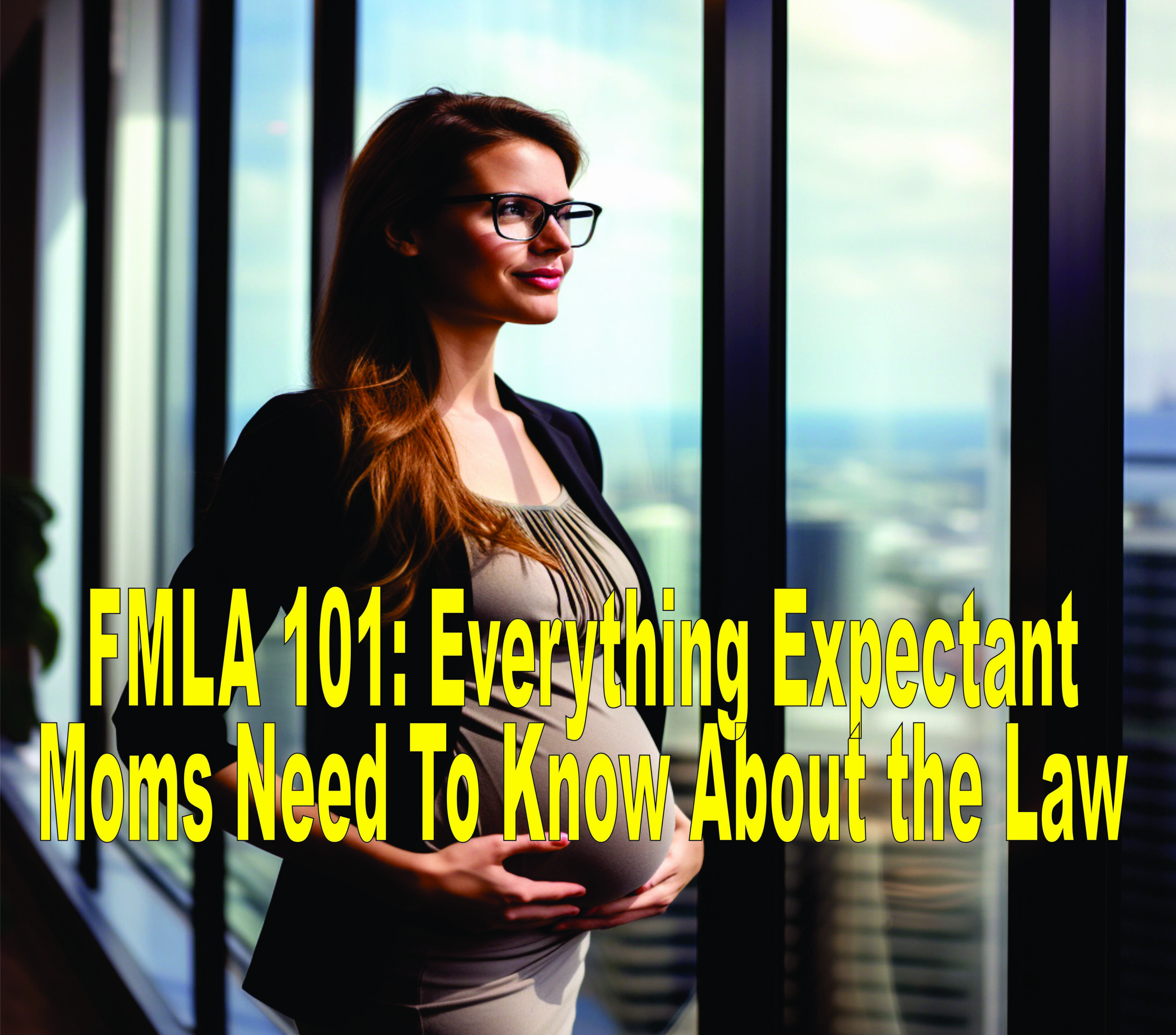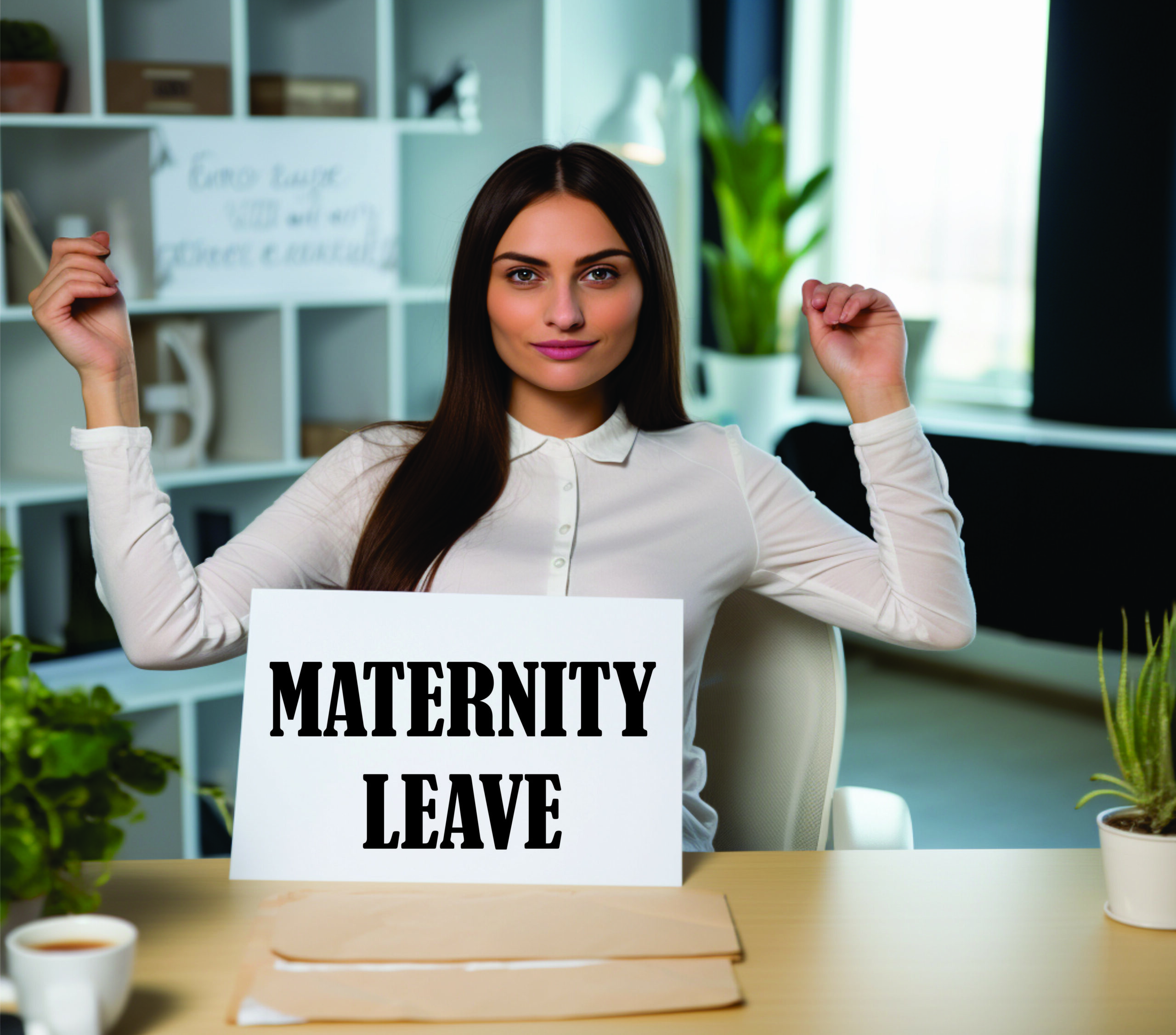Last Updated on January 29, 2024 by Lori Pace
There are many questions you need to ask if you are considering taking maternity leave. One of them is: Does the law protect me? Can I be fired if I take leave? What happens if I have pregnancy complications? Can my employer discriminate against me? Does the FMLA cover maternity leave and how does it work?
These issues are addressed by many states, but American employers also have the federal Family and Medical Leave Act (FMLA) which covers eligible employees for up to 12 weeks unpaid leave to address medical, maternity, and other issues.
Unfortunately, the law does not cover everyone. Because of its limitations, Only 60% of the workforce are eligible for FMLA.
So What Is FMLA?

This federal law was passed by Congress in 1993 and is designed to protect workers who have to take time off for family or health reasons. Maternity leave is an example. Employers covered by the law are required to keep you employed until you return from maternity leaves. They can also offer you a substantially equivalent position, provided you return within 12 weeks of your last visit and follow all procedures. They must also resume your benefits when you return from maternity leave and maintain your health insurance policy during your absence.
Although it is possible to be fired while on FMLA leave your employer must give a reason other than the termination. You can be laid off if your employer reduces staff; however, you cannot be fired for reasons related to your pregnancy, maternity, or parenting status.
FMLA Maternity Leave
What You Need To Know About Paid Maternity Leave
How Long Is Paid Maternity Leave In The US?
You can get up to 12 weeks of FMLA leave each year. This includes all responsibilities. You will only be able to take 12 weeks if you have to leave for any reason, including to address a pregnancy complication or to care for a newborn child. Your employer must give you permission to take longer than this, and your job isn’t protected by federal law.
When you say “a year,” what do you mean?
Employers have the option of determining how they want to measure the year. An employer might choose to use a 52-week or a calendar year as its measurement.
When Am I Allowed To Take FMLA Leave?
If you’re reading this article you probably want to take some time off after having a baby or adopting a child. If your company meets the above criteria, you are eligible! Unpaid leave can be taken to care for sick family members (spouses, parents or children) or wounded family members who are in the armed forces. If you have a loved one who has been called up to active duty, you may be able to take leave to address any urgent situations that may arise.
FAQ About FMLA Maternity Leave
Am I Entitled To It?
It’s possible. Most likely, employees in large private companies will be covered by the FMLA. Your employer must have at most 50 employees within a 75 mile radius to be eligible for FMLA coverage. This can include many types of workers and worksites, including satellite offices and government offices. Part-timers are also eligible.
If I Work For A Company With More Than 50 Employees, Am I Automatically Covered?
No, the law also requires employees to have worked for an employer at least 1,250 hours in the last 52 weeks.
Can I take FMLA leave for my own serious health condition?
Yes, this is where pregnancy complications come in. You can take unpaid time off if you are sick and cannot work. Your job will still be protected when you return.
You say that the leave is “unpaid.” Really?
No obligation is placed on your employer to pay for FMLA leave. However, many employers have leave policies that are paid. Check your employee handbook to see if you have one.
After Congress passed the measure in December 2019, the nation’s 2.1million federal employees now have 12 weeks of paid parental leaves.
Can my spouse take leave too?
Mothers and Fathers are eligible to take FMLA leave since the law is gender-neutral.
Can my spouse and I break up the leave?
Yes. You could go for six weeks and your spouse six weeks. Then you could go for six more weeks and then your spouse could go for six more weeks. After your baby is born, or adopted, each of you get 12 weeks.
What if my co-parent and I aren’t married?
It’s not a problem, FMLA covers both parents and spouses. It’s important to be prepared to provide any necessary documentation.
What if I am adopting, using a surrogate or becoming a foster parent?
You are eligible if you work for a covered company. FMLA covers surrogacy parents. They even cover those with children who are not infants anymore through adoption and foster parents.
I’m worried about my health insurance. Does my employer still have to provide it while I’m out on maternity leave?
FMLA requires that your employer provide health insurance for you. You will need to pay any co-payments you owe to your employer while you are away under FMLA.
Women in my family have a history of delivering early. Do I have to tell my employer that? When do I have to notify my boss I’ll be taking leave?
Pregnancy is very unpredictable. FMLA requires you to notify your employer within 30 days of your anticipated leave date. If an emergency occurs (like when you have to go into labor in a taxi at 37 weeks), your FMLA coverage will still apply as long as you notify the employer as soon possible.
Do I need to check in with my employer while I’m out on FMLA maternity leave?
Yes, if your employer asks for periodic check-ins. Any “check-ins” policy must be applicable to all FMLA leavers, not just the new parents.
What if I give my employer proper notice that I’m taking FMLA leave and she denies my request or fires me?
There may be a legal matter. Your employer may be able to help you resolve the issue. However, sometimes, mistakes can be unintentional. You may be able to resolve the issue to everyone’s satisfaction. No luck? Contact U.S. Department of Labor. There will be a local Department office close to you. Problem still unresolved? Then, talk to an employment lawyer.


